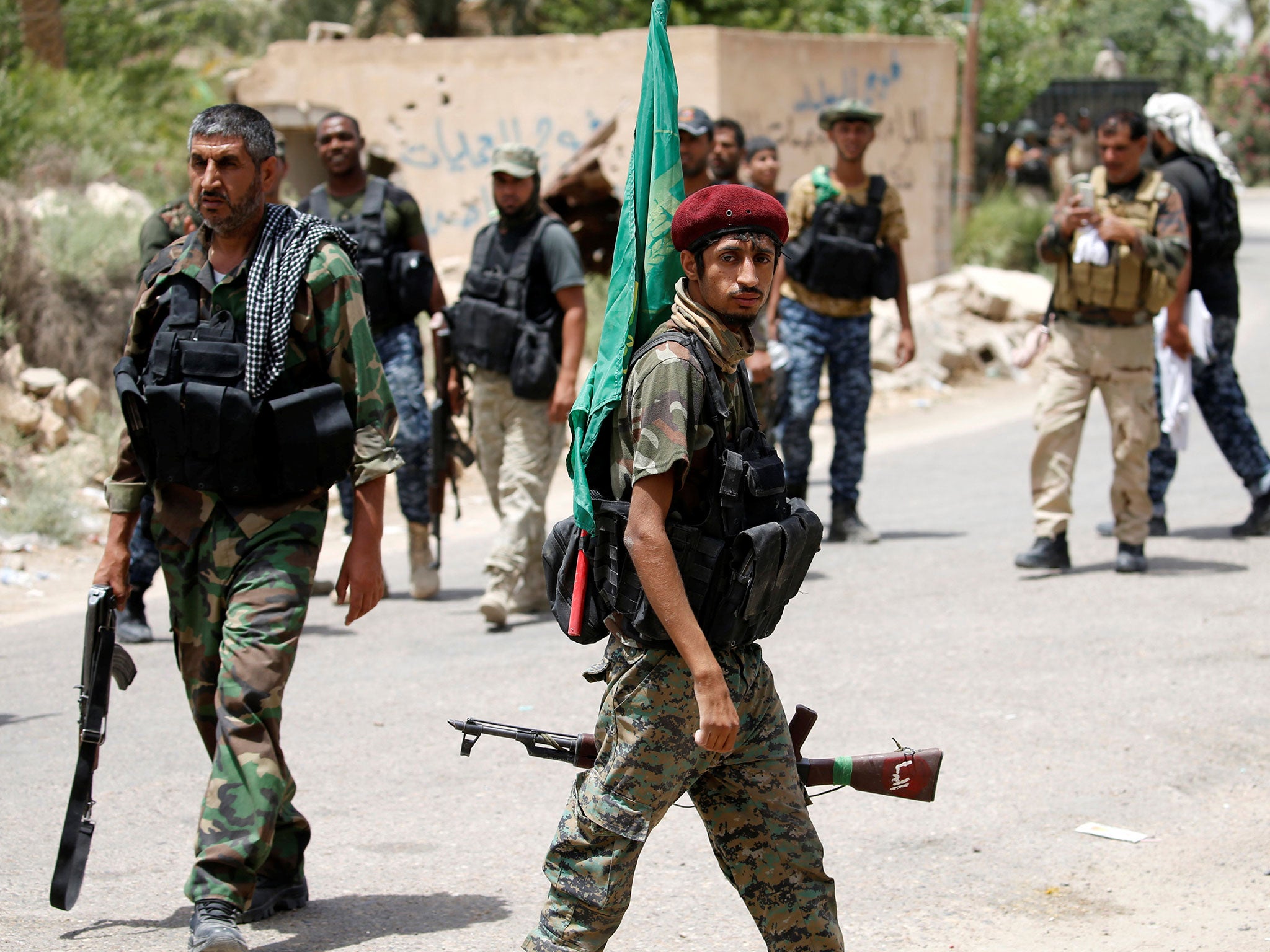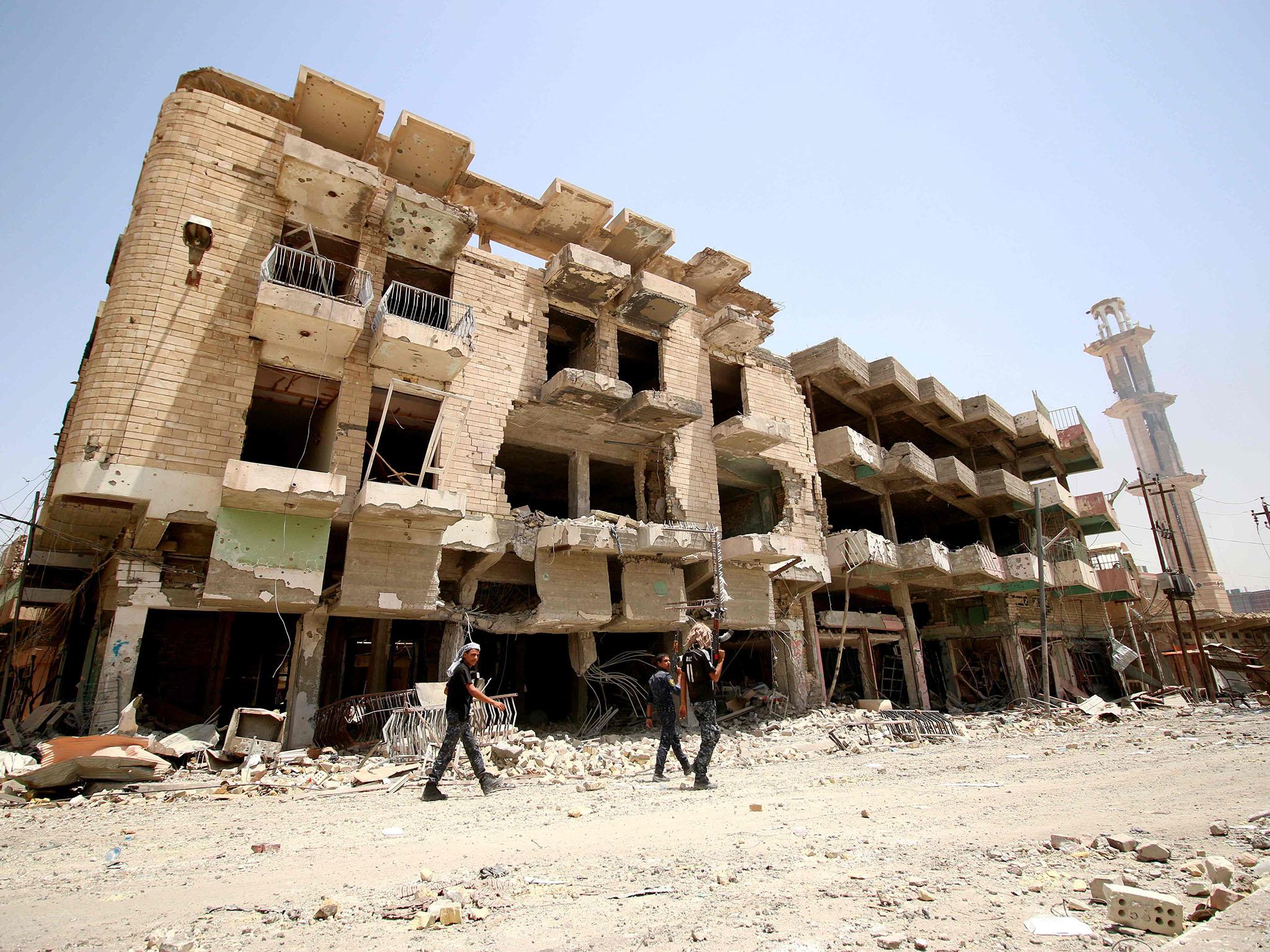Up to 900 refugees from Fallujah feared dead after being kidnapped by anti-Isis militia in Iraq
The UN said at least 49 of those kidnapped had been killed and up to 900 remain missing

Your support helps us to tell the story
From reproductive rights to climate change to Big Tech, The Independent is on the ground when the story is developing. Whether it's investigating the financials of Elon Musk's pro-Trump PAC or producing our latest documentary, 'The A Word', which shines a light on the American women fighting for reproductive rights, we know how important it is to parse out the facts from the messaging.
At such a critical moment in US history, we need reporters on the ground. Your donation allows us to keep sending journalists to speak to both sides of the story.
The Independent is trusted by Americans across the entire political spectrum. And unlike many other quality news outlets, we choose not to lock Americans out of our reporting and analysis with paywalls. We believe quality journalism should be available to everyone, paid for by those who can afford it.
Your support makes all the difference.Up to 900 men and boys who fled their homes near Isis’ former stronghold of Fallujah remain missing in Iraq after being abducted by a militia accused of torturing, shooting and beheading civilians.
The United Nations said captives who have since been freed by the paramilitary group reported a litany of war crimes and atrocities after they sought refuge from battles between Isis and Iraqi forces last month.
Those abducted had been among 8,000 civilians who fled the village of Saqlawiyah, north of Fallujah, as fighting intensified on 1 June.
Warning: The following footage contains distressing images
The Office for the High Commissioner of Human Rights (OHCHR) said the refugees headed towards what they believed to be government forces hailing them with loudspeakers but arrived to find a line of militia fighters behind the Iraqi flags bearing the standard of Kataaib Hezbollah.
The Shia paramilitary group was designated a terror organisation by the US in 2009 because of its attacks on coalition troops but is now fighting Isis alongside Iraqi government forces.
The US State Department describes it as a “Shia Islamist group with an anti-Western establishment and jihadist ideology” that gained notoriety in 2007 with a stream of attacks against the Iraqi state including IEDs, rocket and grenade fire, and sniper operations.
Allegedly receiving funding from Iran and with links to Tehran’s Islamic Revolutionary Guard Corps (IRGC), the group has since switched its focus to fighting Isis and suspected Sunni rebels as part of the Popular Mobilisation Forces.
Leaders of the broad coalition have denied allegations of war crimes and claimed their fighters are treating civilans "like their own brothers" but footage has emerged showing members beating and mistreating detained men.
Around 1,500 and teenage boys were separated and imprisoned in warehouses, while the women and children were transferred to government-run displacement camps in Amiryat al-Fallujah.
A spokesperson said the detainees were denied water and food, with anyone asking for sustenance beaten with shovels, sticks and pipes.
Witnesses reported militia members vowing “revenge for Camp Speicher” – a massacre carried out by Isis in 2014 where its militants murdered as many as 1,700 mostly Shia Iraqi Air Force cadets after overrunning their base in Tikrit.
A spokesperson for the OHCHR said reported survivors saying at least four men were beheaded, while others were handcuffed and beaten to death, with bodies being publicly set on fire.
The prisoners were separated into two groups on 5 June – one of 600 men and boys taken to join women and children at displacement camps and another of around 900 who have disappeared.
The following day, an Anbar governorate official told Human Rights Watch around 600 men released by Kataaib Hezbollah and the Badr Brigades had been received at Amiriyat al-Fallujah Hospital with signs of torture including rape, burns, knife cuts, and bruising from beatings.
A Baghdad resident who visited the hospital said patients told her their fellow tribesmen had been dragged through the streets tied to cars, with some dying at the scene and others of their injuries in hospital.
Zeid Ra'ad al-Hussein, the High Commissioner of Human Rights, said the fate of the larger group of 900 is unknown.
“It is intensely worrying, particularly given the references made to revenge for the Camp Speicher massacre,” he added.
“There is a list of the names of 643 missing men and boys, as well as of 49 others believed to have been summarily executed or tortured to death while in the initial custody of Kataaib Hezbollah.
“Tribal leaders believe there are around 200 more unaccounted for, whose names have not yet been collected.”
Mr al-Hussein said the atrocities and disappearances constituted “the worst – but far from the first – such incident involving unofficial militias fighting alongside government forces against Isis”, and called on the Iraqi government to hold. those responsible to account.
“These crimes are not only abhorrent- they are also wholly counterproductive,” he added.
“They give Isis a propaganda victory, and push people into their arms. They increase the likelihood of a renewed cycle of full-throttle sectarian violence.
“The Prime Minister of Iraq has set up an investigation committee into the disappearances, which I obviously support. But I believe the authorities have to take strong and immediate action to locate the missing men or ascertain precisely what happened to them.”

Prime Minister Haider al-Abadi launched an investigation and arrests have reportedly been made, although there has been no detailed information on any progress.
There are concerns over the prospect of more abductions and atrocities during the operation to re-capture Isis’ largest Iraqi stronghold of Mosul.
The UN has cautioned that male civilians must not be presumed to have links with Isis or be treated as assumed combatants.
Nearly all of the missing men and boys from Saqlawiyah belong to the dominantly Sunni al-Mahamda tribe, who are viewed with suspicion by Shia paramilitaries as a subset Anbar Province’s Dulaim tribe, which has been part of violent resistance against the Iraqi state.
“People who escape from Isis should be treated with sympathy and respect, not tortured and killed simply on the basis of their gender and where they had the misfortune to be living when Isis arrived,” Mr al-Hussein said.
Iraq announced the re-capture of Fallujah just over a week ago after driving Isis out of the city in weeks of intense fighting that saw tens of thousands of civilians displaced and many killed.
More than 60,000 have reached displacement camps where they are living in conditions described as “desperate” by aid agencies, waiting for their homes to be rebuilt or cleared of unexploded ordnance and booby traps.
Isis has been launching a series of terror attacks against Shia civilians in Iraq as it loses territory, killing more than 160 people in a bombing at a shopping centre in Baghdad on Sunday.
Join our commenting forum
Join thought-provoking conversations, follow other Independent readers and see their replies
Comments